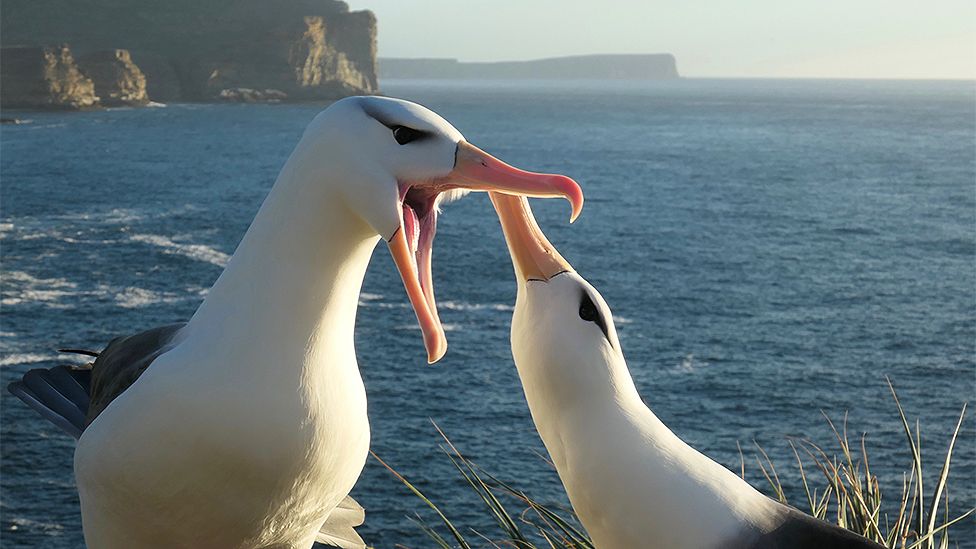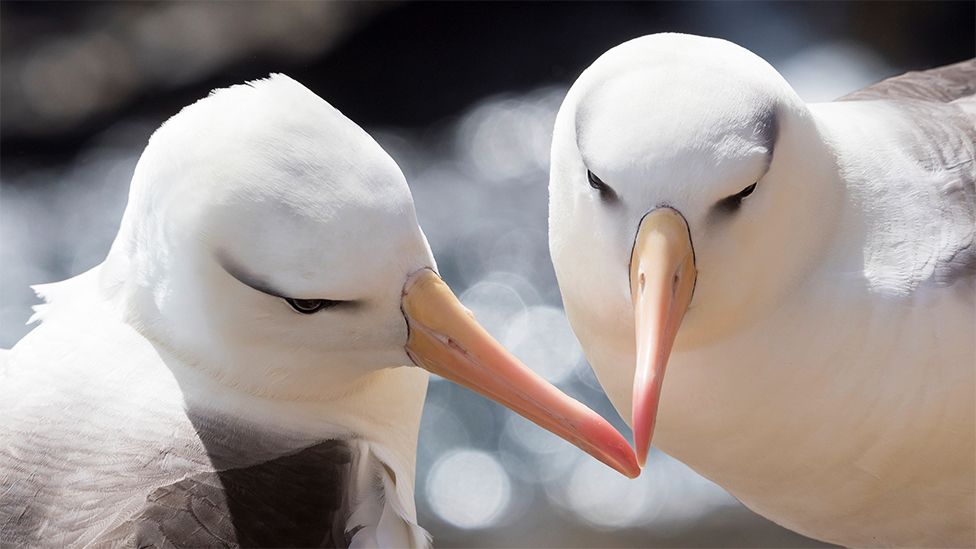
Climate change can cause break-ups! A new study reveals a connection between the change in temperature and Albatross divorce. Here’s how they found out.
Albatross divorce: A climate change aftermath

A new study suggests that divorce rates between Albatross, one of the most loyal creatures, are on the rise. Albatross divorce is the human equivalent of cheating. It occurs when a couple mates with another individual. The study published in the Royal Society journal studies 15,000 breeding pairs in the Falkland Islands for over 15 years. Just like humans, albatrosses also take time in figuring out their partner. However, once they find a good match, they are together for life.
Moreover, merely one percent of the albatrosses divorce. Making albatross divorce rates way lower than that of humans in the UK. However, the numbers rose to a shocking eight percent with the increase in water temperature. “Monogamy and long-term bonds are very common for them,” said Francesco Ventura. Ventura is the co-author of the study and a researcher at the University of Lisbon. According to the study, “environmentally-driven divorce may be an overlooked consequence” of global warming.
Why are Albatross couple divorcing?
Normally the Albatross couple divorces each other when they fail to breed. Parting ways and finding a new partner for the next season is fairly common. However, the study revealed that partners were divorcing each other even when they were successful breeding. According to Ventura, there are two possible reasons- struggles of long-distance relationships or an increase in stress hormones.
Long-distance relationships are hard for everyone, even birds. The water becomes warmer, forcing them to fly further to hunt and feed themselves. And, when their partner fails to return in time, the other bird moves, finding a new partner in the next season.
According to Ventura, another possible reason is the increase in stress hormones. Harsh climates and the warming water temperature lead to an increase in the stress hormone, making breeding conditions difficult. Additionally, the added stress from food scarcity can increase stress hormones and reduce performance, triggering a divorce.
“Temperatures are going up and will go up, so this might introduce more disruptions,” added the researcher. According to him, while the population in the Falkland Islands is not concerning at the moment, the situation might not be the same in areas with a limited albatross population.
